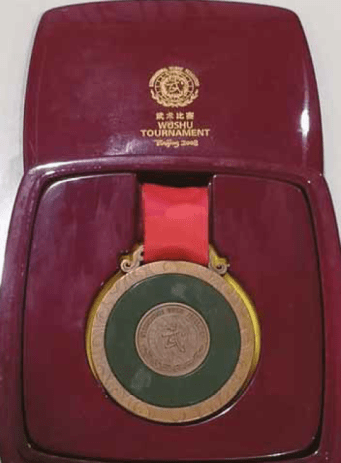
This work is originally published by Cahya Mata Sarawak. DayakDaily has been given permission to share this story on our platforms.
By Martin Yee, Kenny Ee, and Marlynda Meraw
BEFORE the world knew her name, she was just a determined young girl from Kuching, drawn to the graceful yet powerful art of wushu. It was in the corridors of Sekolah Menengah Kebangsaan (SMK) Sungai Tapang that Diana Bong Siong Lin first encountered the sport, encouraged by her elder brother to join the school’s wushu club. What began as a curiosity quickly ignited into passion, and from those humble beginnings, Diana would rise to become one of Malaysia’s most celebrated wushu athletes.
Diana’s breakthrough came in 2006 when she claimed a bronze medal at the Doha Asian Games. It was a historic moment, not just for her, but for Sarawak and Malaysia. Her achievement elevated Sarawak’s stature in the world of wushu, drawing international attention and paving the way for future Sarawakian athletes. Her accomplishment would later inspire the rise of others, like Loh Jack Chang, another Sarawakian who would go on to win multiple world championships.
But Diana’s journey was far from over. Her career blossomed, and she went on to compete on the global stage, earning medals at five World Wushu Championships, four Asian Games, and seven Southeast Asian (SEA) Games. Specialising in the nanquan, nandao, and nangun events, she became a strong presence to those who dared compete against her. Diana’s crowning achievement came in 2013 when she won the gold medal at the World Wushu Championships held in Kuala Lumpur, the highest honour of her career. That victory followed her previous silver medals in Turkey in 2011 and Indonesia in 2015.

In 2008, Diana came close to competing in the Olympics. Though wushu was not an official Olympic event, it was introduced as a demonstration sport at the Beijing Games, and Diana participated in the Wushu Tournament Beijing World Championships, where she claimed bronze in the nanquan and nandao combined event.
Diana’s career spanned more than a decade, during which she competed in four Asian Games—with the first in 2006 and later went on to capture two silver medals and a gold at the Asian Games in Vietnam in 2012, followed by two more silver medals at the 17th Asian Games in Incheon, South Korea, in 2014, and Taiwan in 2016.
During the SEA Games, Diana dominated the competition across five editions of the Games, winning five golds, two silvers, and a bronze between 2007 and 2017. Her victories took her to Thailand, Laos, Indonesia, Singapore, and Malaysia, solidifying her status as one of the region’s finest athletes.

Her journey with wushu led her to work with the national team in 2004, marking the beginning of her illustrious career. Diana excelled in the events of daoshu, changquan, and gunshu before switching to nanquan, nandao, and nangun, where she found her true calling. She remained with the national team until she retired from competition in 2018, after which she returned to Sarawak to share her knowledge and experience with the next generation of athletes. In 2020, just before the Movement Control Order (MCO), Diana took on a fulltime role as coach for the Sarawak Sukma (Malaysian Games) team, continuing to contribute to the sport that had given her so much.
Though Diana achieved international glory, she never forgot where it all began. She often reflected on her journey from a modest upbringing, crediting wushu not only for her sporting success but also for opening doors in her personal life. Wushu allowed her to pursue higher education, earning a degree in Mass Communication and later a master’s degree, while also supporting her family along the way. For Diana, wushu was more than just a sport—it was a path to a better life.
Over the years, Diana’s hard work and dedication were recognised with numerous accolades. In 2013, she was honoured with the National Sportswoman Award and the Best Athlete Award by Universiti Putra Malaysia (UPM). She was also named the Sarawak Youth Icon in 2015 and received special recognition from the Sarawak State Sports Council for her achievements in 2005 and 2006. UPM further acknowledged her excellence with special awards in 2008, 2009, 2011, 2012, and 2015.

After retiring from competition, Diana turned her attention to coaching. She worked at the Yu Xiao Yuan Wushu Academy, the Ho Ro Bin Academy, and UPM before returning to Sarawak, where she now coaches the Sukma team, shaping the future of Malaysian wushu.
For Diana, the path wasn’t always easy, and she openly reflected on her one regret: not winning gold at the World Cup due to a mistake she made. But even that small regret couldn’t overshadow the immense pride she felt for what wushu had given her—a journey from a humble family to international success, a fulfilling career, and the chance to encourage future generations to pursue the art of wushu. –DayakDaily








